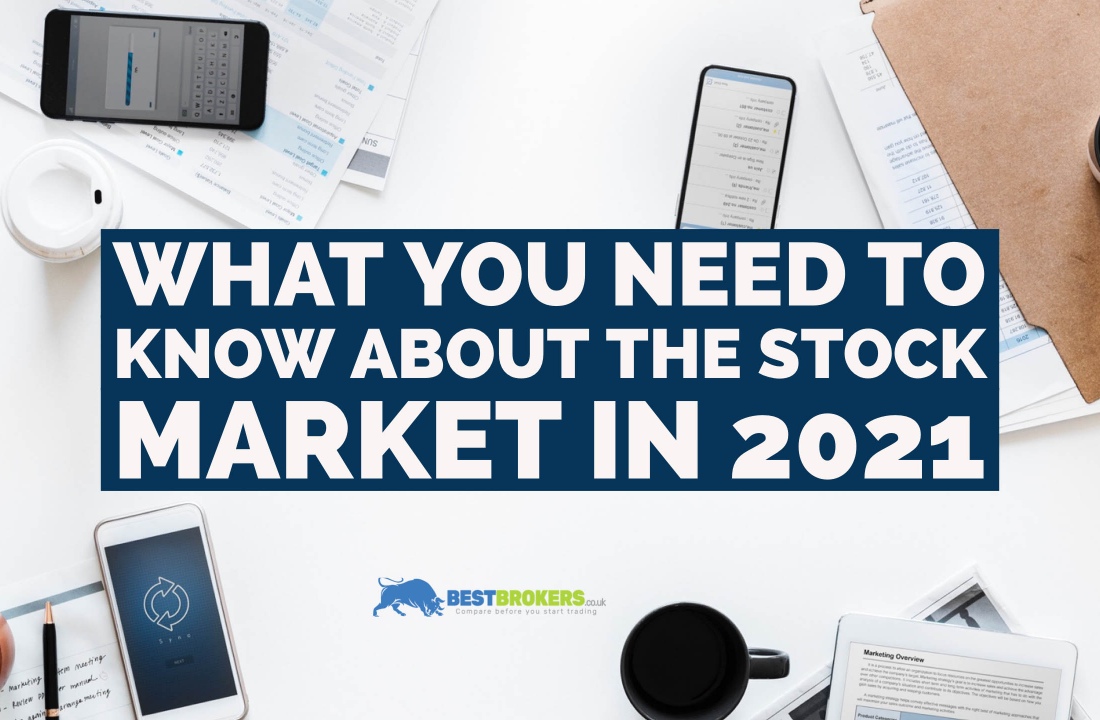What you need to know about the stock market in 2021
Did you miss out on a Bitcoin investment last year? Are you hoping to make up for it in 2021? As you are probably aware, those who bought Bitcoin in Q4 2020 already made a profit of +160% by mid-February. So, a $20,000 investment would now be worth over $50,000.
If you missed out on this golden opportunity to make a profit, you are perhaps determined to get it right in 2021, despite the current COVID-19 pandemic. Here is how.
Investment strategies in uncertain times
2020 was proof that a "simple" virus can cripple a global economy. No one had predicted that people around the world would be on lockdown for weeks or months on end.
This kind of instability is a valuable reminder that investors and traders need to diversify their investments or be resourceful enough to soften stock market blows. For instance, government bonds are far from exciting but a smart move at times like these.
One can never dismiss the possibility of a world war, a new virus or harmful COVID-19 variant. There is no such thing as “zero risk”. While it is not necessary to always prepare for the worst, there is a balance to be found in order to profit from the equity markets without being overly exposed.
The impact of COVID-19
COVID-19 has been beneficial to the tech sector, which has become increasingly stronger over the past year. Nasdaq-100 is continually beating records and shows no signs of slowing down.
However, the pandemic has wreaked havoc in many other sectors, including the financial world. Vaccinations are not likely to make us go back to “normal”. Indeed, there is little doubt that the health crisis will change our habits in the long term:
- Remote work
- Increased focus on health
- New learning methods through digital learning
- An even greater consumption of subscription services such as Netflix, Spotify, Apple TV, etc…
Despite getting acclimated to these new changes and habits, short-term risks remain high due to the surge in COVID-19 cases and the underwhelming speed at which the vaccine is being deployed around the world.
There is also a lot of uncertainty surrounding new vaccines, such as the duration of the protection they provide, whether they prevent transmission, and how effective they are against variants.
Economic growth is inextricably linked to the number of COVID-19 cases and hospitalisation rates. And while a significant portion of the population is expected to be vaccinated by June, we should expect high market volatility in the run-up to such a milestone.
Investing in the future
In order to be successful in 2021, it is best to bet on companies and sectors that are likely to drive change and shape our future. This is what we call megatrends.
Markets such as energy transition, distance selling, machine learning or the ageing of the population are sectors to invest in now and over several years.
Of course, the tech industry is always relevant, particularly during a time when its flexibility and agility are required for life and work during a pandemic that prevents us from functioning as we usually do. Lockdowns have accelerated the permanent rather than temporary relevance of e-commerce, cloud infrastructure, online media consumption, and artificial intelligence services, among others.
Digitisation, automation and connectivity will remain crucial, as trends such as remote work, remote medical care, online shopping, digital payments, home education and entertainment have reached new levels of growth in usage and sales.
Keeping money for rainy days… or interesting investments
Another major lesson to be learnt from recent events: the importance of savings. They won't yield a big return, if any, but will equip you for whatever comes next. Having several months’ worth of savings prevent you from hardship if you ever lose your job or have to settle for a lower income (e.g., if you are on furlough).
Savings will also allow you to take advantage of violent market declines. In March 2020, the markets went down by 30% to 50% depending on the stock exchange. Having money on the side will enable you to optimise your investments.
Will 2021 be the year of rotation?
Analysts certainly think so. Rotation consists in shifting assets from one industry to another. As mentioned previously, the tech industry has seen considerable growth during the pandemic while others (those that are incompatible with lockdowns and social distancing) have shrivelled.
If there were to be rotations in 2021, the tech industry would most likely lose investments to other industries such as tourism and entertainment.
Indeed, if the vaccine is deployed massively and proven to be effective, sectors strongly affected by the crisis are likely to be 2021’s big winners due to pent-up demand once health restrictions are things of the past. These industries include tourism, aeronautics and airlines, hotels and energy.
As always, diversification and risk management are an investor’s top priorities when building an investment portfolio. The aim is to protect oneself against events that are unique to a single company or industry, region or currency.
Progressive investments are the way to go
If you do not know how to approach the stock market in 2021, it is best to use a simple strategy: the weighted average of progressive and automatic investing. With this method, you agree to buy the market at predefined and regular intervals, regardless of their price at that time. This makes it possible to smooth out risk and take advantage of potential market declines.
This strategy has been known to help investors pay a lower average price for their stocks over time than they would have if they attempted “market timing”. It also removes cognitive biases and negative emotion from the equation. If you know that you are going to invest a certain amount of money at a precise time come what may, you will not have to second guess your investment decision.
Last Update on 29/04/21












